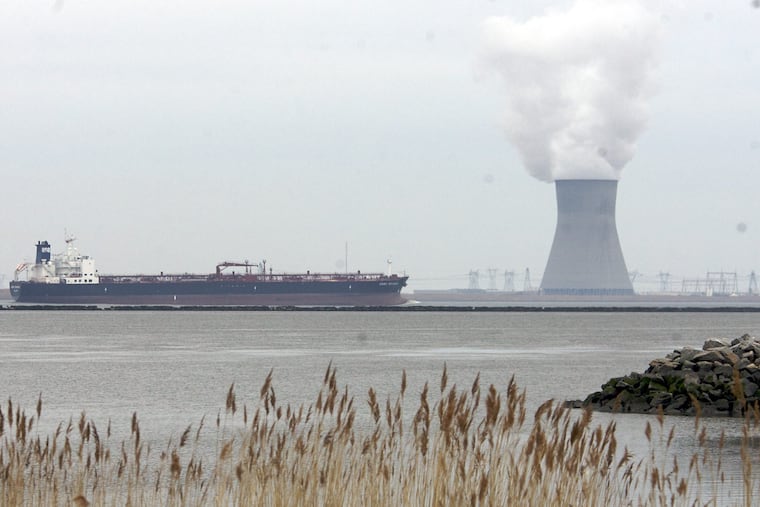New Jersey extends $300 million in nuclear subsidies for Salem County reactors
The subsidies, which cost a residential customer about $2.60 a month, support three nuclear plants that provide 90% of New Jersey's carbon-free electricity.

New Jersey on Tuesday renewed subsidies of about $300 million a year for the state’s three nuclear power reactors at Salem and Hope Creek, the source of 90% of the state’s carbon-free electricity.
The New Jersey Board of Public Utilities approved the subsidies, called Zero Emission Certificates, for three years for the Hope Creek Generating Station and the twin-unit Salem Nuclear Power Plant, located in Lower Alloways Township on Delaware Bay. The giant reactors supply New Jersey with about 37.5% of its power, including about 90% of its electricity produced without greenhouse gas emissions.
The owners of the plants, Public Service Enterprise Group Inc. (PSEG) of New Jersey and Exelon Corp. of Illinois, had argued that without the subsidies, the plants would struggle to compete in markets where prices are set by low-cost natural gas power plants. The New Jersey Chamber of Commerce applauded Tuesday’s unanimous vote, saying it kept New Jersey on track to meet carbon-free energy targets.
But critics, including NJ Ratepayers United, a coalition of consumer groups and nonnuclear power suppliers, argued that the subsidies boosted prices for consumers as well as the profits for nuclear energy producers.
“This will take money away from offshore wind, solar, and energy efficiency programs in New Jersey,” said Jeff Tittel, director of the New Jersey Sierra Club, who called the subsidies a “blank check.”
The subsidies add about 0.4 cents to the price of a kilowatt hour of electricity, or about $2.60 a month for a typical residential customer that uses 650 kWh. That’s about 2% of a typical residential customer’s $123.44 monthly bill from Public Service Electric & Gas, the state’s largest utility and an affiliate of the majority owner of the nuclear plants.
The subsidies were supported by the administration of Gov. Phil Murphy.
“Today’s decision prioritizes public health and our environment by ensuring emissions will not go up as a result of losing nuclear power,” said Joseph L. Fiordaliso, president of the regulatory agency.
“Keeping the plants running will also maintain the stability of New Jersey’s electricity grid and support over 1,000 good-paying jobs, both of which are central in helping the state’s economy recover from the COVID-19 pandemic,” he said.
Several states, including Illinois, New York and Connecticut, have provided subsidies to keep nuclear plants operating, though Pennsylvania in 2019 declined to award support for atomic power, leading Exelon to permanently shut down Three Mile Island Unit 1.